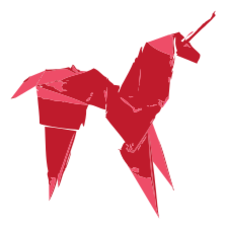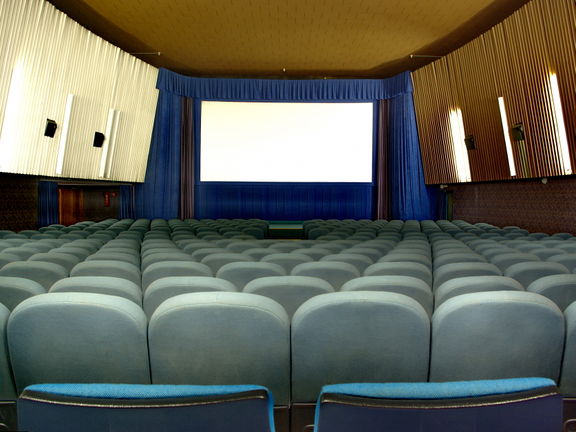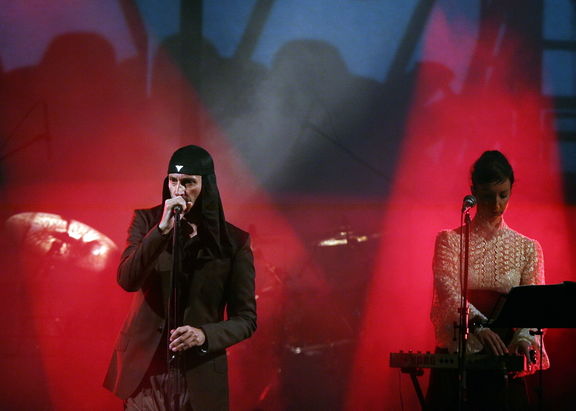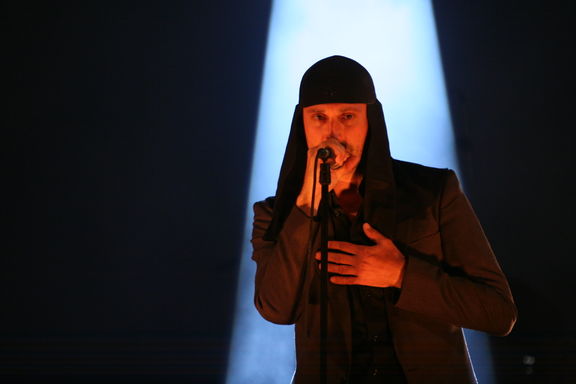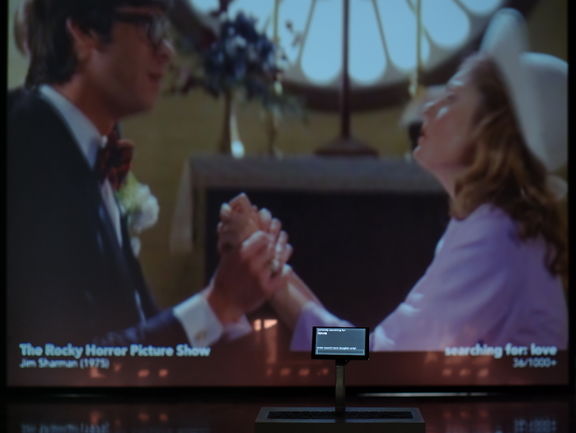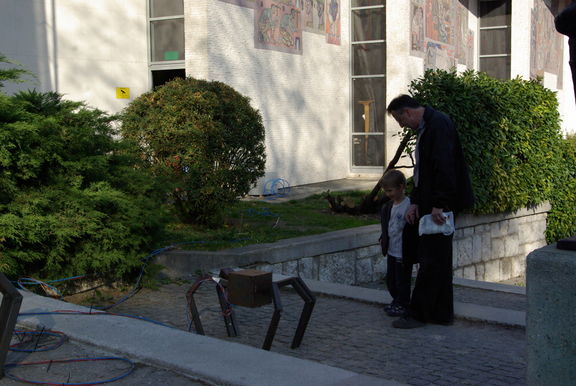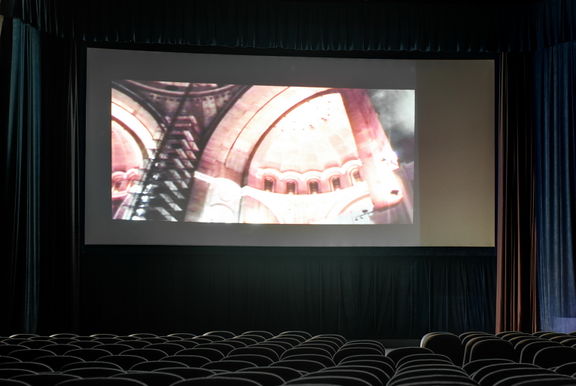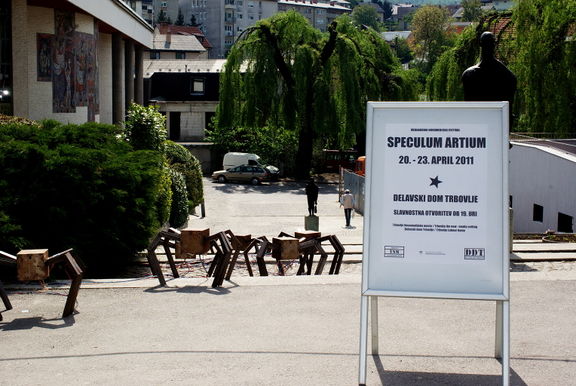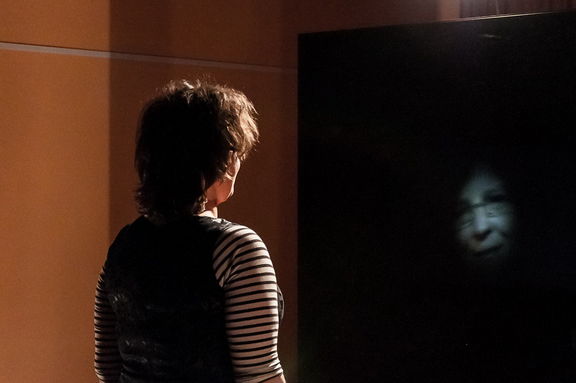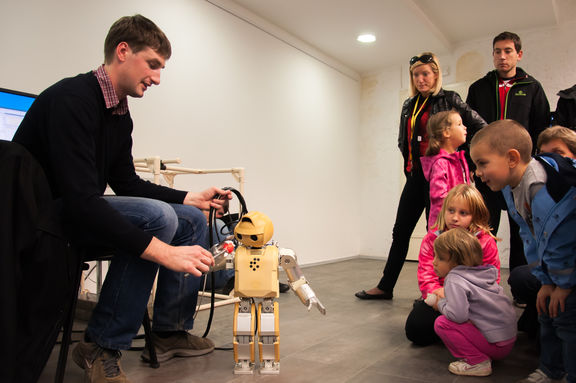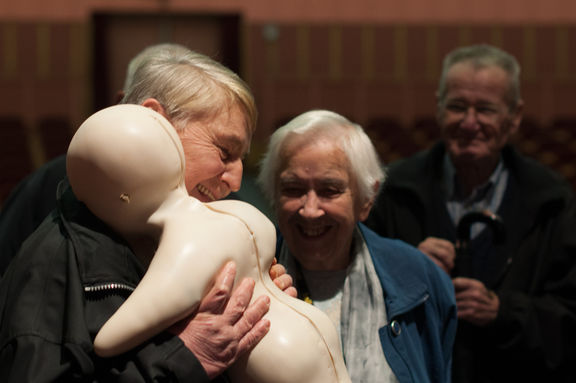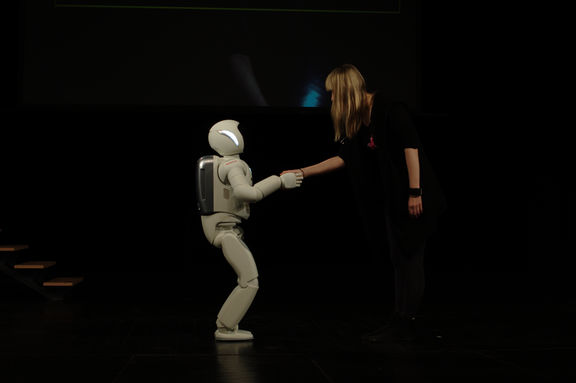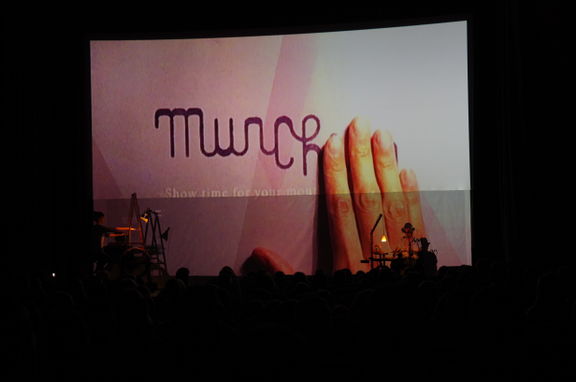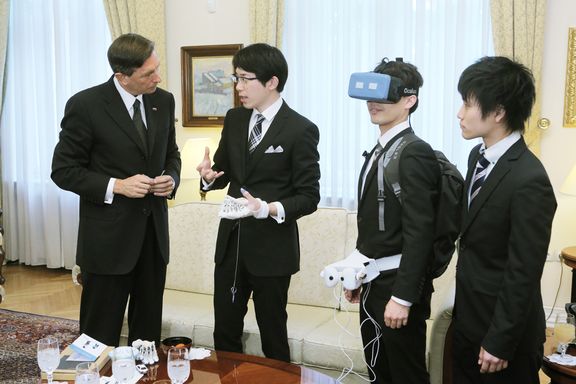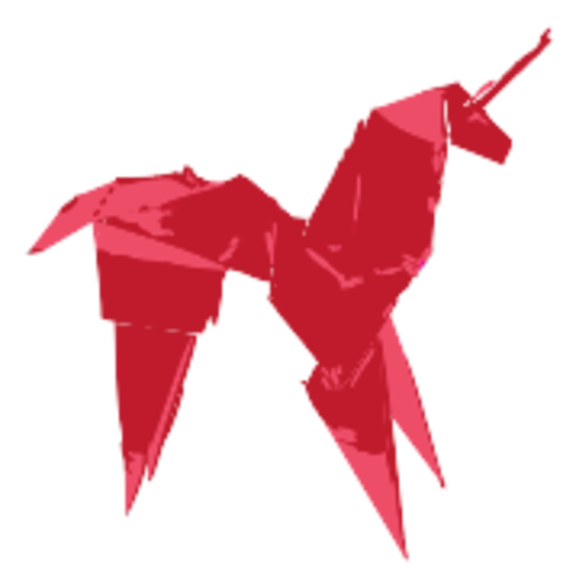Difference between revisions of "Speculum Artium Festival"
Anže Zorman (talk | contribs) (Rewritten and updated) |
Anže Zorman (talk | contribs) (Finished) |
||
| Line 38: | Line 38: | ||
{{Teaser| | {{Teaser| | ||
| − | Established in [[established::2008]] and taking place in the industrial town of Trbovlje, the [[Speculum Artium Festival]] is an annual venture into the field of new media arts and contemporary techno-culture. | + | Established in [[established::2008]] and taking place in the industrial town of Trbovlje, the [[Speculum Artium Festival]] is an annual venture into the field of new media arts and contemporary techno-culture. Delving into territories such as information technology, robotics, bio-mechanics, and virtual reality, the festival tries to act as an intermediary between art, technology, and the society. |
| − | A part of the [[Trbovlje, The New Media Setting]] initiative, | + | A part of the [[Trbovlje, The New Media Setting]] initiative, Speculum Artium is organised by [[Delavski dom Trbovlje Cultural Centre]]. As of 2010 it runs a special sub-programme – the video art festival ''DigitalBigScreen''. |
}} | }} | ||
| − | == | + | ===Concept=== |
| − | + | Speculum Artium presents not only various new-media productions but also strives to establish a critical reflection of the contemporary society and of its political and technological conditions. | |
| − | Speculum Artium | + | The name Speculum Artium refers to a theoretical text by the Austrian artist, curator and theoretician, Peter Weibel. In his text titled the ''The Post-Media Condition'' (2005, see link bellow) he writes about the nature of the "relationship between art and politics which can be expressed as the speculum artium, or the mirror of art". In line with Weibel's theory, the festival treats new media technologies as potentially highly emancipatory spheres. |
| + | |||
| + | Each year the festival is structured around a particular concept. Some of them were ''Art and Science to Empower''; ''Reality Under Surveillance''; ''Integrity of Reality''; and ''Exit Strategy – Art or Technicism''. | ||
==Background== | ==Background== | ||
| Line 53: | Line 55: | ||
The festival was initially set up as a collaborative project under the supervision of the [[Academy of Fine Art and Design, University of Ljubljana, Slovenia|Academy of Fine Art and Design, Ljubljana]], featuring also the [[ArtNetLab]] society, the Academy Of Fine Arts Prague, and the University of Applied Arts Vienna. It was held in the [[City Art Gallery Ljubljana]]. | The festival was initially set up as a collaborative project under the supervision of the [[Academy of Fine Art and Design, University of Ljubljana, Slovenia|Academy of Fine Art and Design, Ljubljana]], featuring also the [[ArtNetLab]] society, the Academy Of Fine Arts Prague, and the University of Applied Arts Vienna. It was held in the [[City Art Gallery Ljubljana]]. | ||
| − | In 2009 the festival moved to [[Delavski dom Trbovlje Cultural Centre|Delavski dom Trbovlje]] | + | In 2009 (with Peter Weibel curating the festival) it moved to it current abode, the [[Delavski dom Trbovlje Cultural Centre|Delavski dom Trbovlje]]. |
| − | |||
| − | |||
| − | |||
| − | |||
| − | |||
| − | |||
==Programme== | ==Programme== | ||
| − | + | Speculum Artium often invites or works with various curators (such as Herwig Steiner from Vienna, [[Srečo Dragan]] from Ljubljana, and Michaela Ortner from Linz). Together they not only present emerging new media practices around the world but also set up talks and presentations by scientists (like Hiroshi Ishiguro, who brought along his android double, and the crew from Honda Robotics, presenting their robot ASIMO) and theoreticians. | |
Some of the artists invited were Stelarc, ARART, Veronika Krenn and Špela Petohleb, Dorcas Müller, Brigitta Zics, Dan Scott, Michael Fisher, Juan Suanca, Lisa Hall, Aram Zarikian, Paolo Zappala, Jessica Pinney, Philip Cornett, Marc Bonet Folgosa, Christoph Schwarz, Julian Palacz, Thomas Frierss, [[Nik Skušek]], [[Jure Fingušt]], [[Dorian Španzel]], Reinhard Gupfinger, Travis Kirton, [[Maša Jazbec]], Group V.A.T., and Tiago Martins. | Some of the artists invited were Stelarc, ARART, Veronika Krenn and Špela Petohleb, Dorcas Müller, Brigitta Zics, Dan Scott, Michael Fisher, Juan Suanca, Lisa Hall, Aram Zarikian, Paolo Zappala, Jessica Pinney, Philip Cornett, Marc Bonet Folgosa, Christoph Schwarz, Julian Palacz, Thomas Frierss, [[Nik Skušek]], [[Jure Fingušt]], [[Dorian Španzel]], Reinhard Gupfinger, Travis Kirton, [[Maša Jazbec]], Group V.A.T., and Tiago Martins. | ||
| − | The festival usually also includes the exhibition of students' artworks, reflecting the issues of contemporary society by way of audio and video installations and interactive projects. It | + | The festival usually also includes the exhibition of students' artworks, reflecting the issues of contemporary society by way of audio and video installations and interactive projects. It has a rich accompanying programme with performances, happenings, workshops and concerts (hosting, for example, [[Laibach]]). |
| − | + | ===DigitalBigScreen=== | |
| + | |||
| + | The ''DigitalBigScreen Festival'' was founded in 2010 and later incorporated into Speculum Artium as its sub-programme. Its main idea is that of screening video art in a movie theatre with a big cinematic screen (using a digital Sony KA4 projector), thus offering contemporary visual practices a very powerful medium. DigitalBigScreen also makes possible the transmission of the submitted works into the Slovenian Art Cinema network, therefore also reaching audienceS that rarely have access to such contents. | ||
| − | + | The submissions for the screening come from all over the world. Usually they are judged by an international expert committee which bestows awards for the best video. However, the programme of the festival varies from year to year, with, for example, the focus in 2017 being the Fluxfilm Anthology. | |
| − | + | ==Collaborations== | |
| − | + | Speculum Artium often invites various art academies and education and research institutions to participate in its programme. Beside the aforementioned protagonists, the festival has worked with the [[Faculty of Computer and Information Science, University of Ljubljana|Faculty of Computer and Information Science, Ljubljana]], the [[Arts Academy of the University of Nova Gorica]], the [[Jožef Stefan Institute]], the University of Tokyo, the University of Art and Design in Linz, and others. | |
==See also== | ==See also== | ||
| Line 81: | Line 79: | ||
*[[Delavski dom Trbovlje Cultural Centre]] | *[[Delavski dom Trbovlje Cultural Centre]] | ||
*[[Trbovlje, The New Media Setting]] | *[[Trbovlje, The New Media Setting]] | ||
| − | *[[Academy of Fine Art and Design]] | + | *[[Academy of Fine Art and Design, University of Ljubljana, Slovenia|Academy of Fine Art and Design, University of Ljubljana]] |
*[[Arts Academy of the University of Nova Gorica]] | *[[Arts Academy of the University of Nova Gorica]] | ||
*[[Zasavje Museum, Trbovlje]] | *[[Zasavje Museum, Trbovlje]] | ||
Revision as of 14:38, 20 July 2017
Concept
Speculum Artium presents not only various new-media productions but also strives to establish a critical reflection of the contemporary society and of its political and technological conditions.
The name Speculum Artium refers to a theoretical text by the Austrian artist, curator and theoretician, Peter Weibel. In his text titled the The Post-Media Condition (2005, see link bellow) he writes about the nature of the "relationship between art and politics which can be expressed as the speculum artium, or the mirror of art". In line with Weibel's theory, the festival treats new media technologies as potentially highly emancipatory spheres.
Each year the festival is structured around a particular concept. Some of them were Art and Science to Empower; Reality Under Surveillance; Integrity of Reality; and Exit Strategy – Art or Technicism.
Background
The festival was initially set up as a collaborative project under the supervision of the Academy of Fine Art and Design, Ljubljana, featuring also the ArtNetLab society, the Academy Of Fine Arts Prague, and the University of Applied Arts Vienna. It was held in the City Art Gallery Ljubljana.
In 2009 (with Peter Weibel curating the festival) it moved to it current abode, the Delavski dom Trbovlje.
Programme
Speculum Artium often invites or works with various curators (such as Herwig Steiner from Vienna, Srečo Dragan from Ljubljana, and Michaela Ortner from Linz). Together they not only present emerging new media practices around the world but also set up talks and presentations by scientists (like Hiroshi Ishiguro, who brought along his android double, and the crew from Honda Robotics, presenting their robot ASIMO) and theoreticians.
Some of the artists invited were Stelarc, ARART, Veronika Krenn and Špela Petohleb, Dorcas Müller, Brigitta Zics, Dan Scott, Michael Fisher, Juan Suanca, Lisa Hall, Aram Zarikian, Paolo Zappala, Jessica Pinney, Philip Cornett, Marc Bonet Folgosa, Christoph Schwarz, Julian Palacz, Thomas Frierss, Nik Skušek, Jure Fingušt, Dorian Španzel, Reinhard Gupfinger, Travis Kirton, Maša Jazbec, Group V.A.T., and Tiago Martins.
The festival usually also includes the exhibition of students' artworks, reflecting the issues of contemporary society by way of audio and video installations and interactive projects. It has a rich accompanying programme with performances, happenings, workshops and concerts (hosting, for example, Laibach).
DigitalBigScreen
The DigitalBigScreen Festival was founded in 2010 and later incorporated into Speculum Artium as its sub-programme. Its main idea is that of screening video art in a movie theatre with a big cinematic screen (using a digital Sony KA4 projector), thus offering contemporary visual practices a very powerful medium. DigitalBigScreen also makes possible the transmission of the submitted works into the Slovenian Art Cinema network, therefore also reaching audienceS that rarely have access to such contents.
The submissions for the screening come from all over the world. Usually they are judged by an international expert committee which bestows awards for the best video. However, the programme of the festival varies from year to year, with, for example, the focus in 2017 being the Fluxfilm Anthology.
Collaborations
Speculum Artium often invites various art academies and education and research institutions to participate in its programme. Beside the aforementioned protagonists, the festival has worked with the Faculty of Computer and Information Science, Ljubljana, the Arts Academy of the University of Nova Gorica, the Jožef Stefan Institute, the University of Tokyo, the University of Art and Design in Linz, and others.
See also
- Delavski dom Trbovlje Cultural Centre
- Trbovlje, The New Media Setting
- Academy of Fine Art and Design, University of Ljubljana
- Arts Academy of the University of Nova Gorica
- Zasavje Museum, Trbovlje
- ArtNetLab
External links
- Speculum Artium website
- DigitalBigScreen website
- Trbovlje, The New Media Setting website
- Trbovlje Cultural Centre website (in Slovenian)
- ArtNetLab website
- The Post-Media Condition, a text by Peter Weibel
- 2008 Speculu Artium webpage



